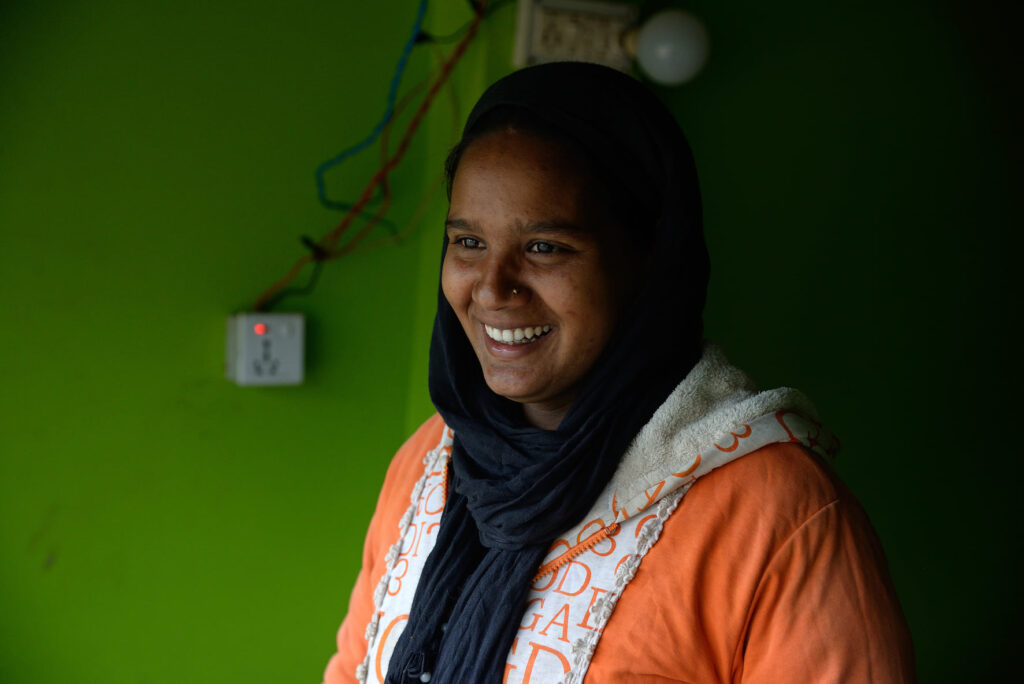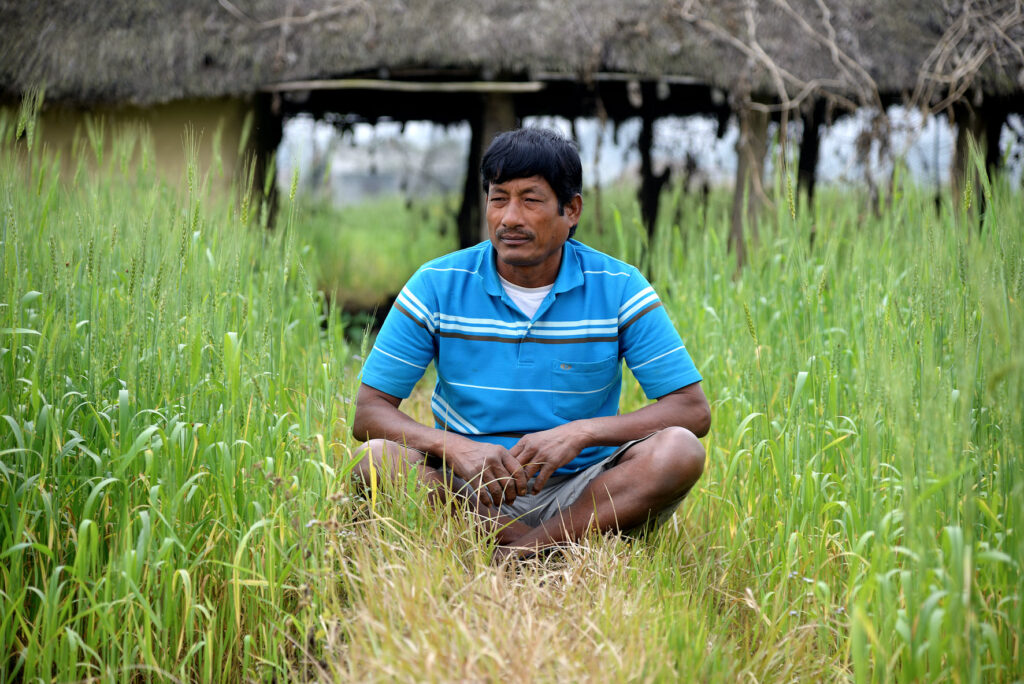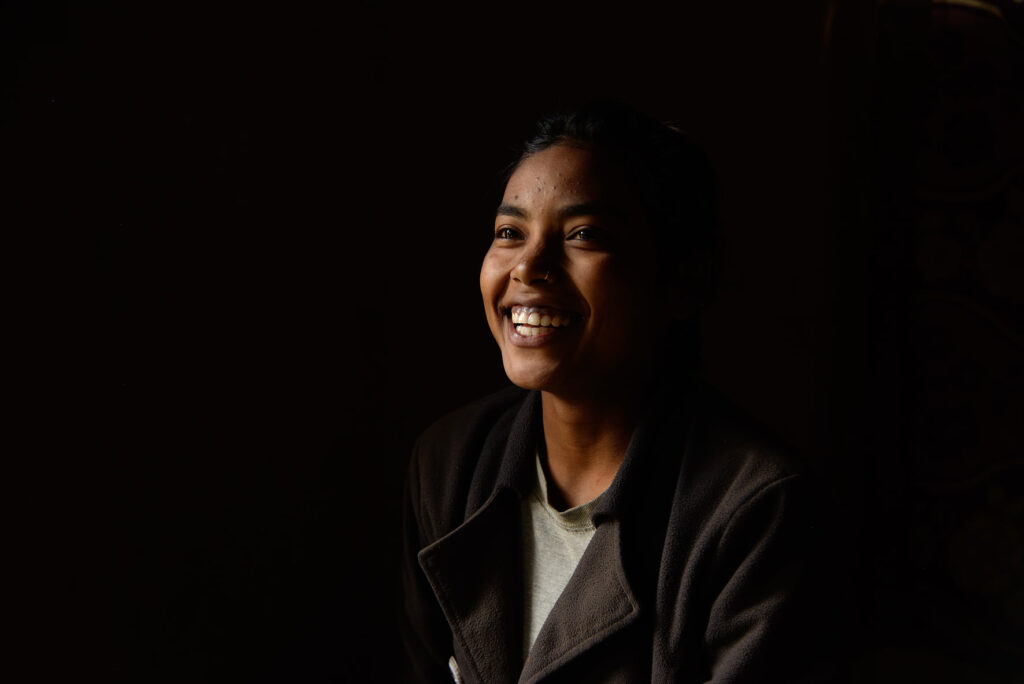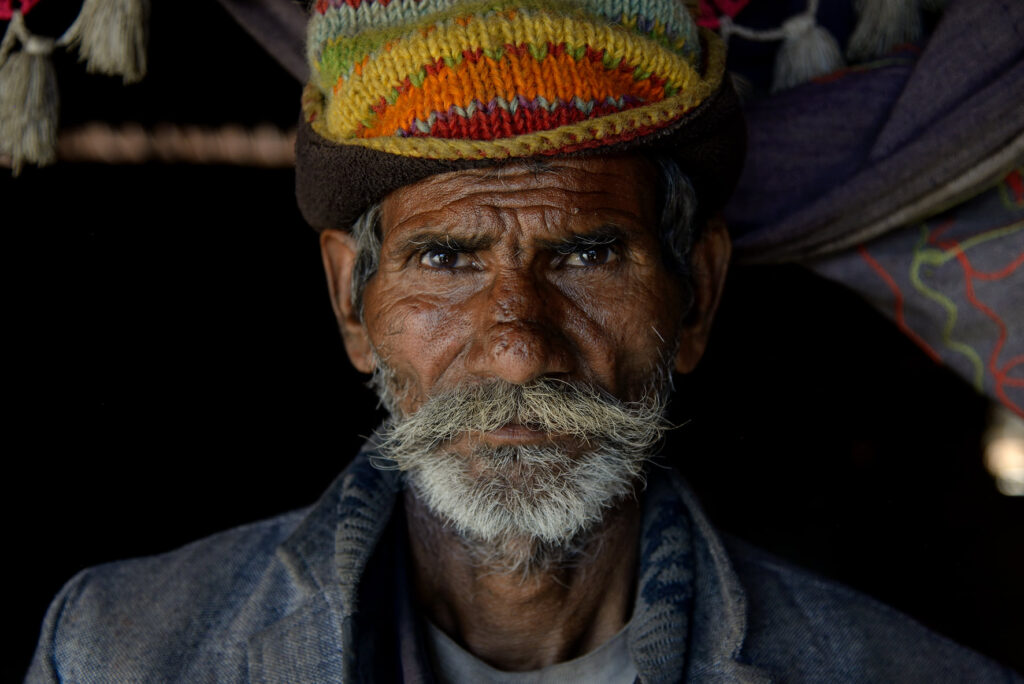
Santoshi Kumari Tharu Kumal Gadwa GP 3, Khaira, Dang
(Part 2/2) “I don’t know if I was lucky or unlucky to change my mind that day. A Didi had come to visit me and had seen me packing. She had lived outside of home as a Kamlari and knew what it was like. She warned me. “There is no other place than at home. And the place you are going to will never be your home. You will be a servant and lonely.” It made me think. I wasn’t so naive to be dependent on people I didn’t know. I could do something in the village. Whatever it took. At the time the Didi brewed alcohol at home and sold it at shops. I asked her with enthusiasm if she would teach me. And if she promised I would go tell my father. I would tell him that I would work at home and bring double the money. I would tell him I would not be a burden and an extra mouth to feed. Didi sympathized with my predicament. She said she would teach me. I ran to my father and told him I was not going. I explained to him my plan and he simply said, “Do what you like. Even if you are not able to bring money home, we will still feed you. You are my blood and I love you. But make sure you gather firewood to cook the alcohol because it gets scarce around here.”
Father’s permission was a big thing for me. Had he said, “No, go!”, I could not have done anything. But now I could stay at home. I started visiting Didi’s home to learn to make alcohol and she taught me. I was a good student. She was the best teacher I could have had. As I got better she allowed me to brew my own alcohol. I would fill it up in jerry cans and sell it to shops. I had earned money for the first time. The money brought with it new hopes and new dreams. I could continue with school. I was 10.
For the next three years, I paid all my bills. My tuition fees, my uniform, my books and pencils and my tiffin. I sold alcohol and I took care of myself. Sometimes my friends would invite me to a picnic but I would deny them. I could not spend the hard-earned money. I needed it for school. I managed to study up to the 11 grade. But after that, I got married.
The view in our societies is that daughters do not belong to the homes they were born in. Their place is with a family that they hardly know. The same thing happened to me. I quietly accepted my father’s decision and got married. Would things have been different if I had not? I do not know. My marriage put an end to my livelihood, the work that brought me money and contentment. I am amongst the many women who made sacrifices. In my husbands home, things were not different financially. MY husband’s parents also made clay pots. My husband drove a public van and his income wasn’t much. In a few years, we both were parents to two children. I could not sit idle, the money wasn’t enough. And I was habituated since my childhood to earn a living for myself. I did not want to be dependent on anyone, not even my husband. I was made dependent because I had no choices that men had. One day I told my husband I wanted to work. At first, he asked me about the kids and who would take care of them. I told him that they will grow and that we can take turns. He knew I was serious and he knew I would not let this go. Finally, he agreed. I got a job in cooperative collecting deposits. from farmers. Today, I walk around my village hobnobbing with the farmers and they gave me little sums of money which the cooperative saves for them. They also receive interest.
I am happy that I am still working and making money. I can buy my own bangles. I can sometimes pay for my children’s tuition and sometimes I can even buy gifts for my in-laws. I do not ask much. I take my kids to my parents and they are also happy, especially my father. He boasts in front of his guests, “Look this is my daughter and I am proud of her. She sold alcohol when she was only 10 and paid for her school herself. Even today she is working. Even today, she is visiting her old parents with my grandchildren.” I just smile at him and remain hopeful for my children.”
#RightToEarnALiving
Stories of Nepal X ICCO Cooperation South Asia X European Union in Nepal





